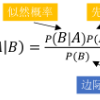Drafting in Magic the Gathering is a sub-game within a larger trading card game, where several players progressively build decks by picking cards from a common pool. Drafting poses an interesting problem for game and AI research due to its large search space, mechanical complexity, multiplayer nature, and hidden information. Despite this, drafting remains understudied, in part due to a lack of high-quality, public datasets. To rectify this problem, we present a dataset of over 100,000 simulated, anonymized human drafts collected from Draftsim.com. We also propose four diverse strategies for drafting agents, including a primitive heuristic agent, an expert-tuned complex heuristic agent, a Naive Bayes agent, and a deep neural network agent. We benchmark their ability to emulate human drafting, and show that the deep neural network agent outperforms other agents, while the Naive Bayes and expert-tuned agents outperform simple heuristics. We analyze the accuracy of AI agents across the timeline of a draft, and describe unique strengths and weaknesses for each approach. This work helps to identify next steps in the creation of humanlike drafting agents, and can serve as a benchmark for the next generation of drafting bots.
翻译:魔术集的起草是一个更大的交易卡游戏中的子游戏, 数个玩家从共同的人才库中挑选卡片,逐渐地建立甲板。 起草给游戏和AI研究带来了一个有趣的问题, 因为它有巨大的搜索空间、 机械复杂、 多玩家性质和隐藏的信息。 尽管如此, 起草工作仍然受到研究不足, 部分原因是缺少高质量的公共数据集。 为了纠正这个问题, 我们提出了一个由10万多份模拟的匿名人体草稿组成的数据集, 从草稿sim. com中收集。 我们还为起草代理提出了四种不同的战略, 包括原始的脂质剂、 专家调控的复杂脂质剂、 纳米贝斯 代理和深层神经网络代理。 我们测试了他们模仿人类起草的能力, 并表明深神经网络代理体超越了其他代理体, 而纳米湾和经过专家调的代理体则超越了简单的脂质。 我们分析了从草稿中收集的人工代理体的准确性, 并描述了每种方法的独特优缺点。 这项工作有助于确定建立像人类起草代理人的下一代基准的下一步。




